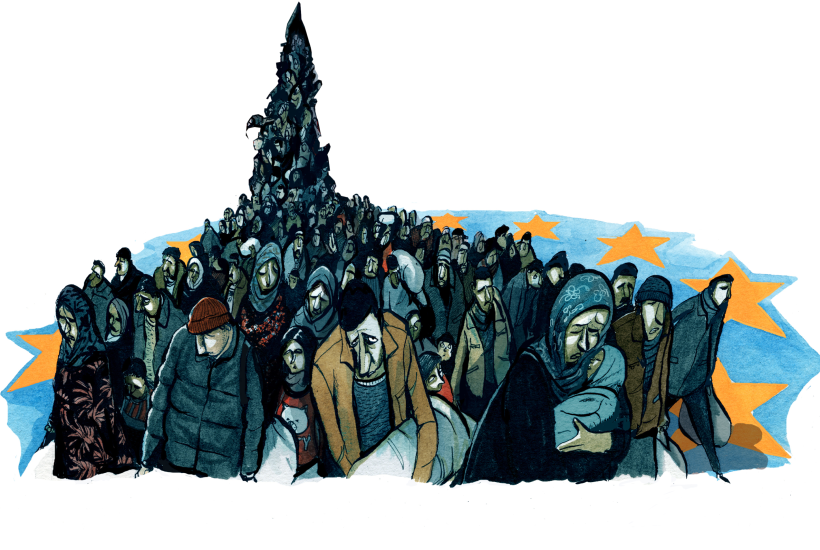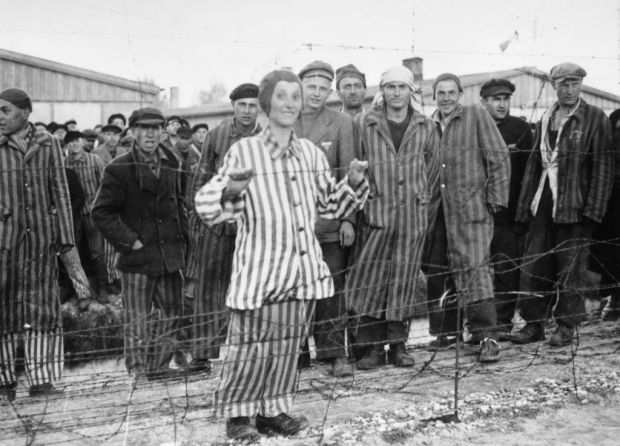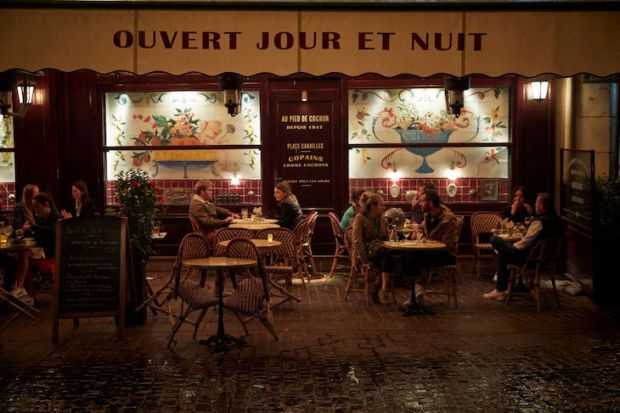Fortress Europe is pulling up the drawbridge. The takeover of Afghanistan by the Taliban is likely to being about a new wave of refugees heading west, and so walls and fences are being hastily built around the borders of the Schengen Area. As scars inflicted by the last migrant crisis re-open, the possibility of a new influx of refugees is causing deep apprehension throughout the EU.
At Usnarz Gorny, on Poland’s border with Belarus, the migrant crisis is already beginning. Twenty four Afghan migrants currently sit stranded in no man’s land between Polish and Belarusian border guards. Left without food or clean drinking water for weeks on end, their situation has become a no-win moral dilemma for the Polish government.
The migrants are among the many thousands duped by the Belarusian authorities. As part of a ‘hybrid warfare’ waged by the dictator Alexander Lukashenko against the EU, Belarus has been enticing refugees from Afghanistan and other countries and sending them across the border into Europe. Poland, Lithuania and Latvia have now seen huge increases in migrants from war-torn countries in recent months.
For Poland, there can be no good outcome from the drama unfolding in Usnarz Gorny. The government faces a choice between accepting the migrants – and in so doing encouraging the hostile actions of the Belarusian regime – or leaving them stranded in dire circumstances on the country’s doorstep.
In the wake of the Taliban’s rapid takeover of Afghanistan, the case has taken on a wider dimension. It is also being seen as a litmus test of the attitude of the country – and the wider central European region – towards a potential new wave of mass migration from the East.
When over a million migrants crossed the Mediterranean to reach Europe in 2015, central European countries refused to help the EU deal with the crisis. Poland, the Czech Republic and Hungary bluntly refused to take in refugees. In 2020, they were found to have broken EU law in failing to fulfil their obligations as part of the bloc’s controversial ‘migrant quota’ system.
There is little to suggest attitudes in the region have changed since then. Commenting on the situation in Afghanistan in a recent radio interview, Hungarian prime minister Viktor Orbán said migration ‘is not a human right’ and that countries to the east of the EU should bear the responsibility of looking after refugees.
‘Cooperation with the Turkish government is a key issue. It is in our interests to keep prospective migrants who want to leave Afghanistan there, in the region. Let’s help them there, not bring trouble here,’ he said.
Unfortunately for Orbán, Turkey is unlikely to accept attempts by Europe to offload responsibility for refugees. President Erdogan has warned that Turkey will not be ‘Europe’s refugee warehouse’ as Greece put the finishing touches to a 40-kilometre fence intended to keep asylum seekers out.
Poland’s reluctance to take in the migrants camped at its borders may meanwhile be influenced by international tensions with Belarus. But in citing the ‘destabilising’ influence of migration as the reason for its opposition to Belarus’s actions, the government has set a precedent for future waves of mass movement from Afghanistan. It would be surprising if, having left two dozen Afghans without food and shelter at its border for weeks on end, it subsequently adopted a no-questions-asked stance towards migration on a far larger scale.
In the neighbouring Czech Republic, the response to the Taliban takeover has indicated a similar instinctual aversion to the idea of mass migration. Far from volunteering to accept refugees, the Czech government refused to join other EU countries in suspending deportation procedures for illegal Afghan migrants already in the country.
With elections approaching in October, all three candidates for Czech prime minister have declared themselves against any new migrant quota system imposed by the EU. Legal action over the country’s refusal to take in refugees in 2015 failed to change public opinion on the matter: a recent poll showed 63 per cent of the population does not believe the Czech Republic should volunteer to take in those fleeing Taliban rule.
Central Europe’s apprehension over refugees is reminiscent of attitudes seen in 2015 – only this time around, similar concerns are evident in western Europe too. French President Emmanuel Macron has spoken of the need for caution in welcoming ‘significant irregular migratory flows,’ while Brussels is notably less keen to criticise the erection of border fences in Poland and Lithuania than when Hungary constructed a southern barrier to keep migrants out in 2015. Indeed, Orbán’s arguments that migrants should be kept in the East now sound decidedly mainstream.
It is becoming clear that rather than learning lessons from its past mistakes, the scars of the 2015 crisis will only make it more difficult for the EU to deal with refugees fleeing Afghanistan. And as the walls go up around the bloc, central Europe’s long-held scepticism about accepting refugees seems to be catching on.
<//>
Got something to add? Join the discussion and comment below.
Get 10 issues for just $10
Subscribe to The Spectator Australia today for the next 10 magazine issues, plus full online access, for just $10.




















Comments
Don't miss out
Join the conversation with other Spectator Australia readers. Subscribe to leave a comment.
SUBSCRIBEAlready a subscriber? Log in